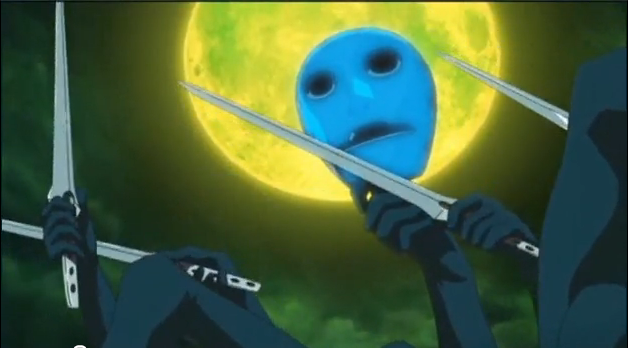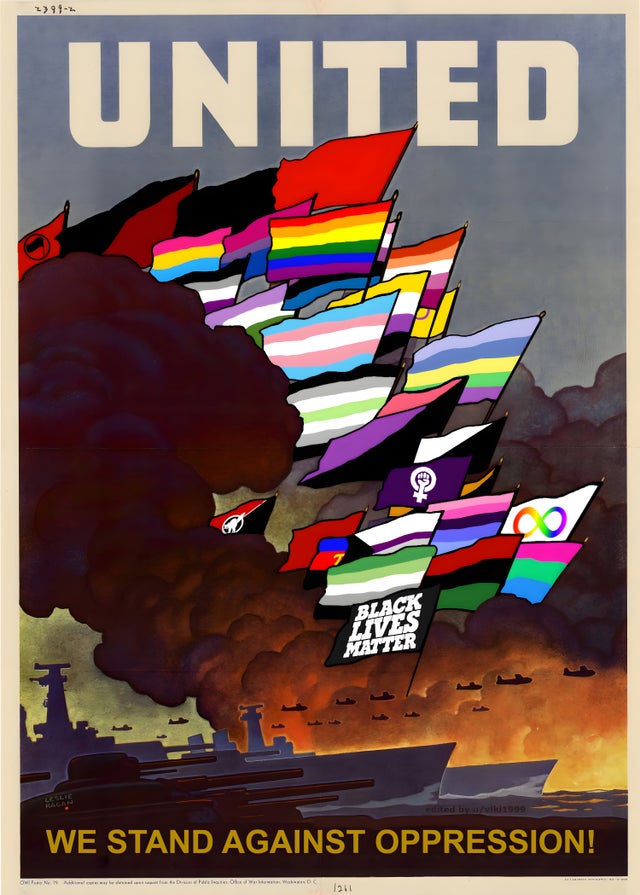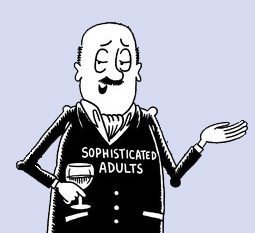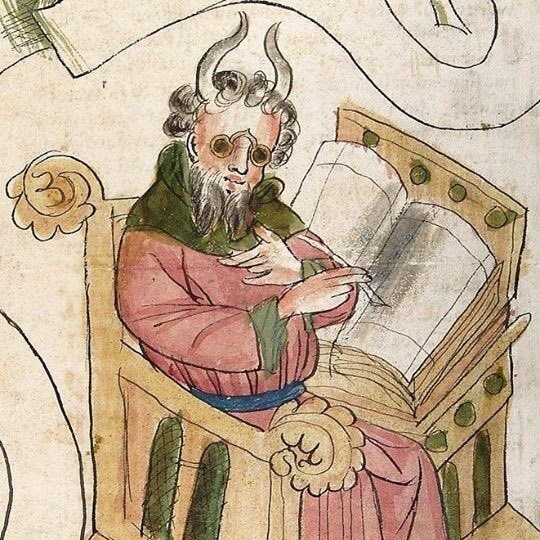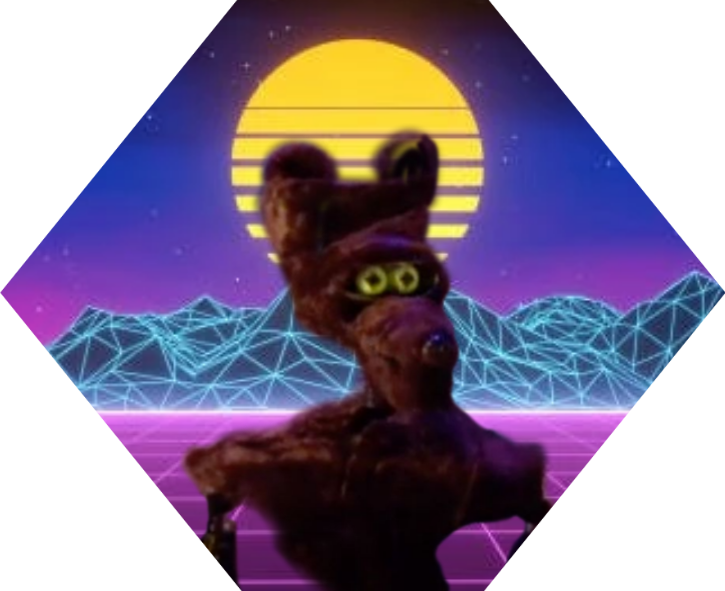I'm joking with the meme, but it's an interesting how plot armor unintentionally places value on people's lives in fiction.
It's telling that censorship laws decide who it is and isn't acceptable to kill. Just thinking about violence against sentient robots and how that's normalized in things like Samurai Jack.
Like we know the robot has thoughts and feelings, like they'll try to run to save themselves or plead for mercy, but a character can still heroic after essentially killing a non-human who's acting like how we understand humans.
I feel like there's something dangerous in how easily we can depict appropriate targets of violence. Not just robots, but anybody deemed as less than human are allowed to be more put at risk.
![]()
Unnamed people are killed in superhero fights all the time. But unless they are of a class of characters like protagonists, they are collateral damage at best.
I think Plot Armor as a trope needs more class consciousness and awareness around how deciding who gets to be protected is often an unconscious political belief.
What about you though? Any tropes in media you'd like to see explored more or written with a leftist understanding?
i'm pretty much done with any story about restoring the "correct" monarchy. be a bunch of communes with a defense pact or something like damn
where is my fantasy fiction about creating leagues of city-states to oppose The Empire?
or communi organizing to secure rights against their feudal suzerains?
I wrote the aftermath of a coming of age where he becomes disillusioned with a kingdom, forsakes his dream of being a royal knight, and joins a joint effort of the communes to burn down the monarchy. Unfortunately, the faction most willing to have open conflict is an angry diaspora who technically has a king.
This one is my number one pet peeve when it comes to capeshit stuff. It's either A: the villains have a point but they're just oh so evil that it doesn't matter anyway (marvel did this at least twice, it's in The Batman and it still bugged me but I do think they pulled it off in a way that I was ok with) or B: the hero(es) are actually villains (the boys, invincible)
Might be kinda specific, but just once I'd like to see a superhero story where the "villains" are actually 100% right and aren't cartoonishly evil AND the "Hero" is the one who has to come around to their side, going against the status quo in the process. Just once I want "the villains are the good guys" to be played straight.
I don't ever need to read another story where the protagonist is seemingly of humble origins but is secretly a VERY SPECIAL person, perhaps even the one FORETOLD BY PROPHECY
If it wasn't a compelling basis for a story, it wouldn't be used so much. But after the first thousand stories like that it's enough already
You know why the people who have inherrited the status and power to greenlight stories do so for stories about nepotism babies saving the world? It is kinda sad really.
Come to think of it, are there any movies/games/books with very prominent chosen-one plots that end up not fulfilling the prophecy?
Hella spoilers for the original Mistborn trilogy:
spoiler
The Hero of Ages never got the chance to fulfill his prophecy, because the local guide with him killed him and replaced him and ends up becoming the Big Bad of the first novel. It's later revealed he was preventing an even Bigger Bad from breaking out in between all the evil, selfish empire bullshit he got up to.
I hate seeing things like, "the royal court: words are sharper than daggers here and you must be more alert than on any battlefield." I like political intrigue, so I get it. But I'm 90% certain most aristocracy was people with seven toes on each foot from decades of inbreeding going to court to decide which son was going to marry their 13 year old first cousin.
I'd like to see it subverted from a left wing perspective.
Just stay the hell away from time travel. It can be neat and thought provoking when done with enough thought put into it as a central conceit, but more often it's just a narrative ass-pull that causes more problems than it solves.
The exception that proves this rule, when its done in a comedy. The series Red Dwarf has a few episodes where time travel or time running backwards or a time portal are used and its funny. I think the movie James vs Himself has got some funny parts too.
Basing a fantasy culture off of a real-life culture. Or even worse, basing a fantasy race off of a real-life culture - that's just dehumanization. It's very common, it's very problematic, and it's a remnant of racist 20th century fantasy. The Forgotten Realms has to be destroyed, sorry. Genshin Impact as well.
If you're going to be using a real-life culture, you need to seriously know your stuff and have respect for the culture you're writing about (this is why Liyue is good and Sumeru is racist trash, for instance). I'd say to most people that if you want to use someone else's culture cause it's cool, consider worldbuilding something unique instead and save us all a headache.
What's really problematic is when they just have race wars in there, as a thing, and it's not examined at all. For all the things BG3 does well, it treats the goblins as completely disposable even within the narrative itself. There's deep gnome characters who live on the surface in Baldur's Gate, but every single goblin is a football hooligan that eats people and can't read. All they're good for is being slaughtered by the PC or slaughtering all the Tieflings at the grove.
Wild that BG3 literally removed alignments and still made 99.9% of golbins evil
What's worse is that if you do free Sazza and bring her to Minthara, she immediately betrays you and encourages Minthara to kill you instead of rewarding you for freeing her and letting her report where the Grove is, and she gets fed to the spiders.
If they really wanted progress they should have let us bone some green shortstacks instead of making every goblin take the volcel oath

What's really problematic is when they just have race wars in there
yeah, like making a completely new culture that's unrecognizable from it's inspirations is fucking hard, i'm sympathetic to taking liberties and making a country 'magic italians' or something. but your fantasy cultures should never be doing a fucking race war unless its industrialized, colonial and the story is all about examining that.
medieval and ancient people didn't do race war, they didn't have the ideological bases to even imagine it
Medieval group atrocities were usually religion-based. The Protestant movement motivated a lot of bloodshed, and medieval Christians were real big on Jewish pogroms for damn near anything that might happen. Plague? Famine? Bandit raid? Blame the Jews, have a pogrom. Hell, they did it for recreation sometimes.
To that end I'm kinda using that approach in my own stuff (spoilers for autistic infodumping about my writing that I'm procrastinating on)
spoiler
In the setting I'm writing, a theocratic nation led a genocide of the orcs and goblins after ancient elven magitek industrialization allowed religious political power to fester into religiously-grounded protofascism, and the theocratic leaders were upset with how the nomadic tribes of orcs were interfering with their land grab and also selling their mercenary services to other nations, and of course settled insular goblin communities had worked hard to carve a niche for themselves and monopolize certain specialized trades that industrial barons were keen to take control of so they had to go. Heretics, all of them, offensive to the sight of the human-coded pantheon. After war and famine and magical disasters ravaged a lot of the other populations as well, the remaining orcs and goblins, absolutely mad with lust for revenge, were instrumental in the big multiracial peasant revolution that killed all the nobles and priests that were left and started managing the multiple simultaneous apocalyptic crises unleashed upon the continent.
Also two of the crew of the airship I'm setting it on are from Not-France and speak Not-French and Not-France is the center of remaining Not-Europe culture because they were relatively unscathed by the never-ending lightning storms and time ruptures and roving self-perpetuating undead hordes so they still got their universities and theaters and salons and whatnot, so yeah just slapping some aesthetics on there to get the job done is fine in small doses but it's no fucking excuse for not examining everything and making sure it all fits together and feels true and isn't some fucked up bullshit that inadvertently says some heinous shit
thing with religious wars is they can very quickly find a modus vivendi in the right circumstances, or at the very least a conversion is an immediate reprieve for the victims---which like isn't ideal and arguably cultural genocide but it's a ways from racial extermination.
Protestants were part and parcel to the development of racism though, because the reformation was a time when skepticism of conversion became culturally endemic instead of the private purview of inquisitorial staff. the way the hatred & suspicion of catholics was transposed into racism against irish people was through the "cryptocatholic" panics of early anglicanism, which supplied an excuse to dispossess even the converted irish. come to think of it that would be a cool place for fiction to explore 'racism doesn't quite exist yet, but we're working on it'
 your setting sounds cool
your setting sounds coolThanks for the compliment

Yeah, I'm still working out the details of this and that. What I really need to focus on is finish the story I've been working on since the start of this year. I keep telling people about it instead of writing it.
Tolkien's thing exploring the extremes of humanity as different races was cool. Except there was way too much overlap with real world races that invalidates it for me.
The former is what humans have been doing in mythology since the beginning of civilization. The latter is modern mythology, basically nationalism and fascism in the worst case. There is a reason that neo-Nazis use the term "orc" for people they consider inferior
How did Tolkien explore the extremes of humanity through different races? Lord of the Rings may give thst impression somewhat and the Jackson films quite a bit but on other works elves have quite a variety of cultures and different types of dudes including one of the biggest assholes of the legendararium, Feanor. The dwarves still seem a bit like a monoculture but Tolkien didn't write a tonne on them and they keep a lot of their culture secret to non dwarves. Children of Hurin has examples of characters form all of those races who act against what would become the stereotype (it didn't exist yet, it came from people who were inspired by Tolkien). This may just be me being a giant Tolkien geek and from reading everything the guy ever put to paper at least twice.
Yes you are right, there is a lot of internal diversity within elves and dwarves. That is a saving grace, and not just that, it should serve as direction for modern fantasy writers too who might otherwise overlook the scope of Tolkien's project as the first fantasy work, and write monoliths and stereotypes instead.
How did Tolkien explore the extremes of humanity through different races?
I am trying to recall exactly where I read Tolkien explaining this. Maybe the Silmarillion or one of his letters, or I might be remembering someone else's explanation. Basically the observation that in mythology, subsequently reflected in Tolkien, supernatural races are in fact human but to an extreme in some respect.
Like the elves represent the daring and heroic of humanity, once young, powerful, and immortal in a new world, then weary of it once past the point of glory. The dwarves are humanity's drive to build and conquer nature, to an obsessive degree. Orcs are humans twisted by industrialization and warfare. Hobbits are humans stubborn yet content in their traditions, maybe fearful of change as well.
You see the same across mythologies, which I believe Tolkien was aware of. In Indian mythology, the gods and gandharvas are humans with extreme power, virtue, knowledge, and compassion. The asuras are the same, but without compassion. Rakshasas are asuras without the virtue and knowledge. Pretas are hungry and all-consuming. The apsaras are sexual and playful. And so on. They are all humanoid, even the ones which aren't, paradoxically, like the nagas, kinnaras, and kimpurushas.
All put together, at least in the Indian conception, they are all characters in a divine drama, meant to celebrate or teach the human condition to the human audience.
I see what you mean there. I'd have to guess it's someone else's explanation though. It's for sure not in the Silmarillion or published letters and it doesn't sound like how Tolkien considered his own work. He may have had that influence but his 'anti allegory' (big quotes) brain would just deny it. It's both there and totally subverted at the same time, actually, yeah, that does kinda cover it, I can't think of a character or story in the legendary that doesn't apply to and even thematically it does both all the time every time.
There are two classes of tropes for me: the ones which serve as actual building blocks of worldbuilding and storytelling, and the ones which are cultural biases.
The former are just the usual patterns retold throughout history, like the hero's journey. They can seem boring, but it's because they are generic and need to be localized to the fictional world or a culture's mythology. Arguably, the way we identify these involves bias, eg. the hero's journey is mostly based on Indo-European mythology. But I hope my point can still be made.
The latter category are the tropes informed by biases. Or to put it another way, when you can create any possible world or write whatever story, why is it just medieval Anglo shit over and over? Ever notice how most fantasy maps are left-justified? Even hard worldbuilders who do all that meteorological calculation shit can't perceive a linguistic reality beyond the European sprachbund.
It's like learning the etymology of a word. Sometimes you find out the way we use words today is very weird, and we shouldn't assume it applies across all time and traditions ("man" used to be gender neutral, for example). Except some core words eg. "to be," "to go," "to come" are relatively very stable.
Omg I thought I was the one going crazy telling people of the implicit racism in LotR or other fantasy works!
I mean "horde" comes from the Turkish word "ordu" meaning army and was used to describe the ottoman ordu/horde. Is it then a coincidence that the orcish horde are often depicted wielding scimitars and the elves straightswords?
Why is mordor placed in the exact position as anatolia on the map? Rectangular in shape with near insurmountable geological features as its borders???
edit: I just took a look at the map for the first time in years and omg, minas morgul (once a gondor city) is so clearly gallipoli/troy coded, the black gates guarding the "main entrance" (who fell to mordor because of a plague in gondor) for Istanbul, the misty mountains the alps and the shire being obviously england doesn't even need to be mentioned
The geography is specifically based on earth's, because it's meant to be set in the distant past of our irl earth when there was still magic.
That one is supposed to take place on our earth. The work began as an attempt to fabricate a pre Christian mythology for England, for nerdy shits and giggles. It kinda went on its own rail after a while but within the fiction it's still maintained that it does take place in the past of our own world.
The sword thing really gets me but I am usually quiet and self-conscious that it sounds like whining.
I really like swords, all swords! But growing up, I was taught that straight swords are the good and elegant ones, while all other designs are for evil henchmen who die immediately. The exception being the katana because weebs caught onto it as a glorified exoticized object.
In general, it confused me how knight, samurai, and ninjas become categories in themselves, but no other historical warrior figure gets to have the same.
Period pieces from the 1940s-1960s USA made decades later where amongst a group of white people, only one of them is actually racist and the rest are fairly enlightened (see The Help, for one example). If you were a white American in 1955 and you weren’t a commie, there is a high likelihood you were hella racist. Michael Moore told the story on Chapo where they announced that MLK had been shot at his all-white church and the whole congregation started fucking cheering and celebrating. Most white people back then were very racist and this trope really whitewashes it.
That said, I really like the DS9 episode Far Beyond the Stars for this reason. Shimmerman is the only white character that is explicitly not racist but he’s also implied to be a leftist if not a commie. The others are either a bit racist or at best indifferent to Avery Brooks’ racial struggles. The cops beat him up, too. Pretty accurate. And maybe this was a throwaway line, but I love how Sisko doesn’t want to go to the 1960s Vegas holodeck program because, as he explains, that time and place wasn’t great for black folks. Don’t know if that was the intention of the writers but it’s kinda true, all the white characters are just loving Vic Fontaine and who atmosphere, completely oblivious to the broader society going on around them.
I'm tired of The Fall. I get it, everything was great until
the Fire Nation attackedMelkor can't hold a tunesomebody ate some fruit from a tree you put there you duncea terrible thing happened and now we're trying to regain ourmojolife essencekidnapped princessD E S T I N Y. Similarly, I'm tired of Precursors in science fiction. Cool, you found some ruins fromSpace Romansan ancient civilization! such wow, what old, so mystery, smol feels.Both cases would do well to get Historically Materialist.
Series idea: scientists find ruins of an alien civilization, but all of the most enduring ruins are Bronze Age mega structures made from stone. All of the technology that they had is scraps that have been blasted away by thousands of years of decay and the scientists have to make guesses based on ice core samples of when they started their industrial revolution and how far along they got and why the whole thing collapsed.
This would be an excellent space horror as they increasingly question why their species/civilization made it past whatever event they are trying to study.
 We found some space relics!
We found some space relics!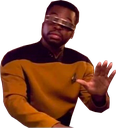 Why are they space relics?
Why are they space relics?In the last episode, the leading scientist sums up everything they've discovered: "At first we thought it was an asteroid impact, then we thought it was nuclear war, but now we're pretty sure they cooked themselves with greenhouse gasses and their space colony failed once the resupply missions stopped getting sent."
this is mass effect pretty much
"Alright, so uh, it looks like maybe it was space global warming? Like the evil bad robot gods are trying to stop the literal end of this galaxy while still leaving life alone while it's not actively destroying the literal stars?"
"Well, uh, no, actually. We talked to their devs and uh, it turns out they're just really fucking stupid."
"What?"
"Yeah they just suck a lot, that's their whole thing. The robots are really fucking stupid and they're doing the dumbest thing they could and they're so fucking stupid that even though they know they shouldn't be doing this they don't have an off switch so they just keep doing it."
"What?"
"Yeah..."
The Reality Dysfunction book series has a "dead" alien civilization
spoilers below
spoiler
that committed mass suicide to keep their dead from demon possessing the living and taking over the universe.
I get it but like we just figured out how to make concrete as good as the Roman's like a year ago. Anyone borne before ww1 would have looked at roman mechanical engineering as a marvel. Still in places in America today come to that. So the fall is actually the most realistic trope. Just look at our highways in America made by our grandparents. We couldn't do that today.
We couldn't do that today.
Yes we can. It's called state intervention. It doesn't happen now because the current state has been hollowed out by capital to the point of minimal functionality in the u.s.
We can easily look to our contemporaries in China and see them doing shit exactly like what happened back then and then some extra because of the technological difference between the 1950s to now.
Honestly, classist elements in plot armor isn't out of pocket. That was my experience reading the Gods of Blood and Powder trilogy (the sequel trilogy to the Powder Mage books). I love McClellan's books, but there were a lot of moments of henchmen being casually slaughtered and it's just like, "plot demands we keep chugging."
Unnamed people are killed in superhero fights all the time. But unless they are of a class of characters like protagonists, they are collateral damage at best.
I think Plot Armor as a trope needs more class consciousness and awareness around how deciding who gets to be protected is often an unconscious political belief.
They attempted this in The Boys but it ended up being a liberal CIA jerk off
The boys was (? I hope) such a liberal jerkoff torture porn masquerading as systemic critic I couldnt bear more than the first 2-3 episodes before turning it off and that was not because of the CGI violence
I'm just thinking about you what you said about the superheroes. It would be very interesting and make for much more no bite multifaceted characters if they had to deal with the deaths of Innocent bystanders and mourn them or be punished for them accordingly.
Marvel does this a little bit with the snap but I would love to see it more.
That lots of urban fantasy goes by "private investigator and/or cop" as a window into fantastical society. I understand that it is very convenient for exporation and exposition, but like cmon invent something new. Incidentally, lots of time cop/investigator runs into not enough power levels, cya.
That as well lol, but that more like a half-sibling. Urban fantasy is from noir father and fantasy mother, disco from noir father and eastern european literature
It's telling that censorship laws decide who it is and isn't acceptable to kill. Just thinking about violence against sentient robots and how that's normalized in things like Samurai Jack.
Like we know the robot has thoughts and feelings, like they'll try to run to save themselves or plead for mercy, but a character can still heroic after essentially killing a non-human who's acting like how we understand humans.
I feel like I should point out that he does kill humans in season 5, and the show more or less says that not only is he still cool and heroic for doing it, he's actually even more awesome now that it can be shown with blood and everything.
Yeah that's wild from a creative perspective. The morals didn't change, the censorship level did because it was on adult swim.
And even then there was still this level of acceptable violence when you're not considered human enough.
They were considered evil enough to kill even if they were born human and made evil against the will.
Yeah that's wild from a creative perspective. The morals didn't change, the censorship level did because it was on adult swim.
I mean, I think that was completely the correct decision, artistically. Samurai Jack was openly influenced by chanbara movies and samurai anime and manga, and particularly by Lone Wolf and Cub. The samurai characters in those stories are cool and heroic precisely because they kill people in stylish and gruesome ways. Shying away from that or rejecting it would have been hypocritical weak. I also think "cinematic violence is incredibly cool and our hero is incredibly cool for killing people in cool ways" is FAR less problematic than "it's cool to kill robots because they're not 'real' people, even when we show them as fully sentient, but killing humans is a big no no."
"Secret cabal controlling the world from behind the shadows" traffics in anti-Semitism. The trope doesn't predate The Protocols of the Elders of Zion. It validates the fascist idea of an enemy being both weak and strong. If the cabal actually control the world, they obviously don't need to hide behind the shadows.
The trope doesn't predate The Protocols of the Elders of Zion
yes it does, the illuminati & freemasons are from the 18th century
now modern interpretations of it definitely have interwoven secret society tropes with antisemitic ones. and the original panics about masons and illuminati were kind of colored with antisemitic tropes
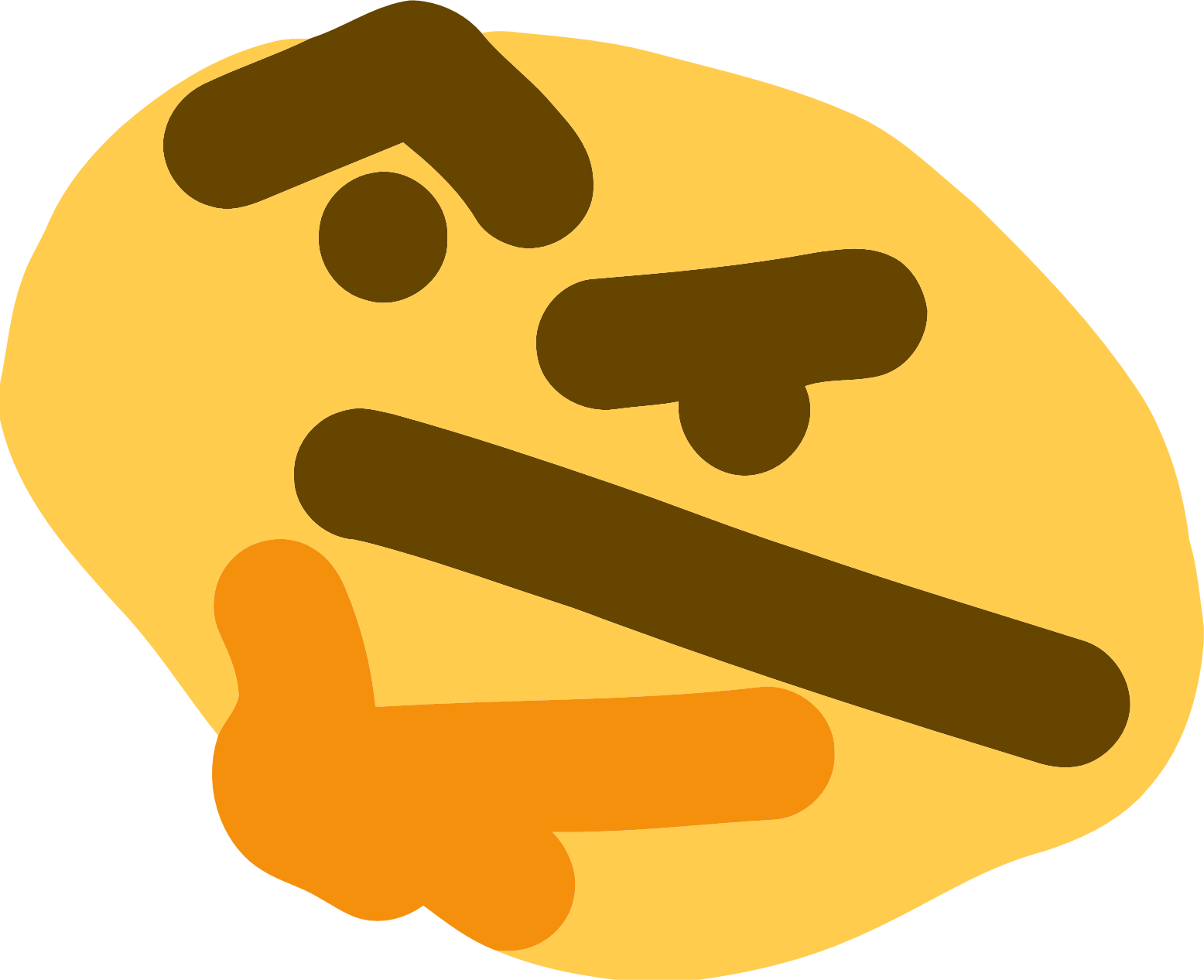 it's all kind of a mess so i guess i'm saying you're broadly correct just too late in your chronology
it's all kind of a mess so i guess i'm saying you're broadly correct just too late in your chronologyThe secret group controlling the world is pretty much as open as you can be about it. They have mega yachts
